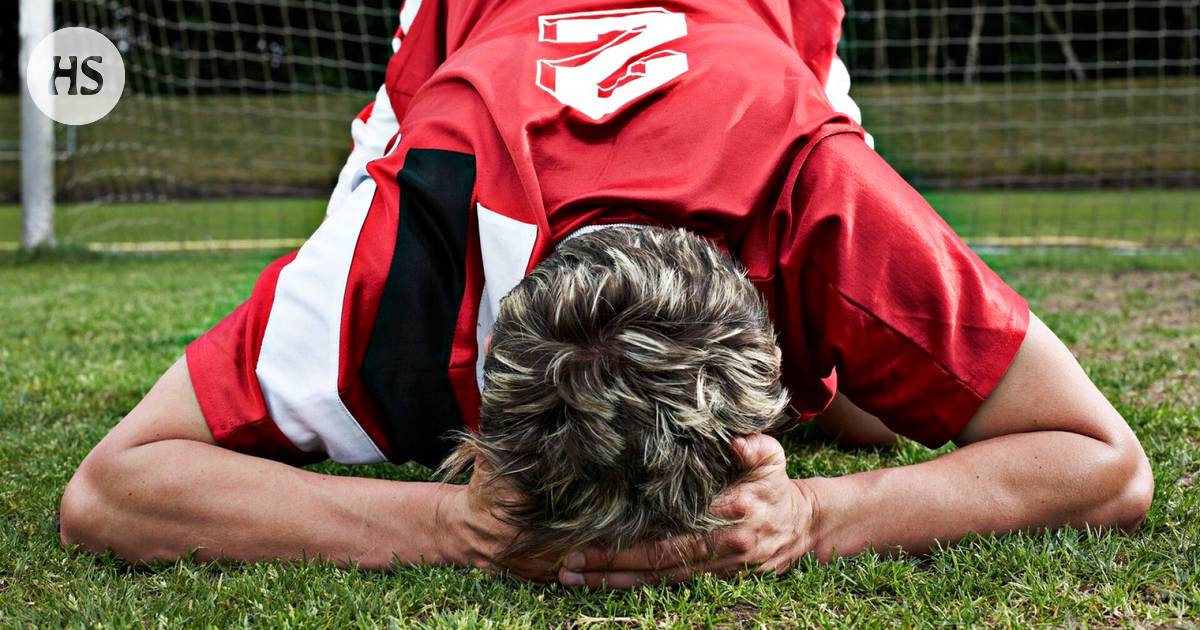The human mind is a big part of sports performance. HS asked two sports psychologists and one spiritual coach what are the most common mental stumbling blocks of Finnish athletes and how to avoid them.
Sports psychologist Marja Kokkonen has worked with Finland’s best track and field athletes as well as, for example, martial arts athletes, figure skaters and gymnasts for several years.
A sports psychologist is a psychologist working under health care legislation, whose job is to support the mental well-being, health and sports performance of an athlete or a team.
“In my work, I aim to support athletes for the best possible performance in competitions or training and help in creating a motivating, safe and otherwise supportive atmosphere”, Kokkonen describes his profession.
Sports psychologist Marja Kokkonen says that lifestyles, relationships and personality factors are reflected in sports performance.
According to Kokkonen, only a small part of the subjects worked on at the reception are related to the sports performance itself. The most common mental challenges are related to athletes’ lifestyles, coping with injuries, personality, thought patterns or relationships.
“Sometimes the largest part of all working time, up to 80 percent, is spent on settling the athlete-coach relationship,” says Kokkonen.
Human relationships with a coach, parents or partner are indirectly reflected in the athlete’s performance and well-being. In addition, lifestyle factors such as rest, nutrition and finding balance are often neglected with athletes.
Personality factors affect all aspects of life. Kokkonen says that during his decades of working career, he has noticed that certain personality traits are often repeated in top athletes.
Persistence, psychological inflexibility and the pursuit of perfection are factors that contribute to performance. On the other hand, they can also be harmful.
“You don’t listen to your own body or feelings, but slavishly follow the training program without caring about the feelings of your body and mind,” says Kokkonen.
Ramble there is also a former discus thrower of European Championship final level on the lines Sanna Kämäräinen. Kämäräinen is not a sports psychologist, but a mental coach who helps athletes grow mentally stronger on and off the sports field.
Kämäräinen’s work focuses on online group courses, in which athletes from 43 different sports have participated.
Sanna Kämäräinen has drawn lessons from her own sports career and now helps other athletes to become stronger mentally.
“Self-compassion studies have found that excessive self-criticism slows down the development of results in sports. It’s a delusion that whipping yourself helps,” says Kämäräinen.
“It may help some in the short term, but in the longer term it is a really bad motivational strategy when you look at the person as a whole.”
Kämäräinen mentions not dealing with past mistakes or failures as the second most common mental pitfall of Finnish athletes.
Kämäräinen says that he himself suffered from the same problem in his time. The failure in value competitions remained haunting and hindered the performance the following times as well.
Kämäräinen lists the lack of prioritization of the spiritual side as the third pitfall. The sports psychologist (cert.) in charge of the sports academy Urhea in the capital region has also noticed the same. Tatja Holm.
Holm in his work, he brings a successful sports culture to Finnish sports, and strengthens athletes’ well-being and performance. At the top sports level, Holm has worked with, for example, track and field athletes, soccer players, gymnasts, ice hockey players and judokas.
Sports psychologist Tatja Holm emphasizes the importance of mental health and says that Finnish athletes often do not dare to seek help.
“Perhaps it is not recognized that the benefits brought by good mental health can actually be utilized there, even in the competition itself,” says Holm.
Although the differences between team and individual sports create different dynamics in terms of sports psychology, Holm also recognizes similarities that apply to all athletes.
According to Holm, recently, in the mental training of Finnish athletes, the support of a person’s holistic well-being and the challenges of mental health have come to the fore. In addition to research, the topics have become visible in trainings and in athletes’ own stories.
Strengthening mental well-being helps, for example, to improve concentration and bring more self-confidence and resources. According to Holm, the key is to reduce stigmas related to mental health, increase awareness and access to help.
“There is a bit of a stigma associated with running out of resources in Finland. You don’t dare to ask for help or admit that it’s hard to be,” says Holm.
“Not daring to seek help is perhaps the biggest pitfall.”
Professionals common stumbling blocks of the spiritual side are lifestyles and relationships reflected in performance, personality factors such as the pursuit of perfection and self-flagellation, not dealing with failures, neglecting psychological well-being, and stigmas related to seeking help.
But how could Finnish athletes avoid these pitfalls?
Kokkonen mentions psychoeducation, i.e. imparting information, as an important starting point.
“Athletes often have information gaps or, for example, false information obtained from the Internet,” says Kokkonen.
According to Kokkonen, athletes often think that they need to completely get rid of negative emotions such as tension or fear. This is by no means true, but the feelings are tried to be mitigated and learned to work with them. You can even set a record with feelings of fear or pain.
“I have been able to encourage and change the stubborn thought pattern of an athlete. The athlete’s eyes look happy when he gets this liberating insight,” says Kokkonen.
In his work, Kokkonen also uses, for example, hypnosis and concrete exercises or homework, with the help of which one learns, for example, flexibility and explores the emotions that have surfaced.
With the athlete’s permission, the coach relationship can be discussed among the three athletes, the coach and the sports psychologist.
Clumsy approaches athletes’ problems also through concrete tools and exercises.
“The biggest stumbling block is that we don’t concretely know how to train the mental side,” says Kämäräinen.
According to Kämäräinen, the first step to avoiding the most common mental pitfalls of athletes is to increase awareness of how the mental side can be concretely practiced.
Spiritual coaching gives concrete tools, among other things, on how to learn to relate to yourself more compassionately. Every athlete can use, for example, imagery training.
“The athlete sent a message that it was precisely those specific imagery exercises that had helped and the competition had gone exactly as he had practiced it in his imagination. It was amazing to see that joy”, says Kämäräinen.
According to Kämäräinen, the mental side can be trained in the same way as the physical, which is why athletes should treat mental training with the same commitment as sports training.
“It can be compared to the fact that if there is a puck competition in a week, I wouldn’t start training for it until today either,” notes Kämäräinen.
Holm says that the athlete’s environment plays a decisive role in strengthening psychological well-being. Training and competition environments can have significant effects on an athlete’s mental and physical health and performance. It is important to remember that there are always complex factors behind mental health disorders.
According to Holm, the importance of sports psychology comes to the fore precisely because it can support the good interaction of the coaching relationship, the sports environment and provide athletes with a safe atmosphere.
“The ideal situation is that an athlete can boldly throw himself into training, pursue his dreams and ask for help when needed,” says Holm.
According to Holm, the enthusiasm is insane when an athlete or coach realizes his development potential in sports in terms of mental training and gets his own resources to use.
“Success is not always limited to physical condition, but there is a person in the background. Mental well-being promotes success and makes it possible to reach one’s own peak,” says Holm.
#Athletes #difficult #mental #challenges #professionals #avoid





/s3/static.nrc.nl/liveblog/files/2024/04/anp-496998518.jpg)



